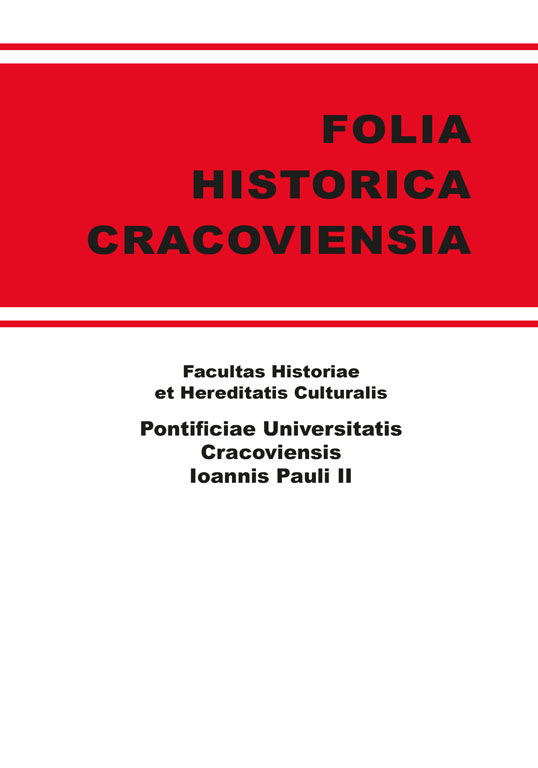Letania more solito dicantur. Przyczynek do badań nad pobożnością maryjną wśród średniowiecznych dominikanów
DOI:
https://doi.org/10.15633/fhc.230Słowa kluczowe:
litania dominikańska, Matka Boska, religijność, średniowiecze, PolskaAbstrakt
Głównym przedmiotem studium jest prezentacja okoliczności powstania oraz miejsca w pobożności średniowiecznych dominikanów modlitwy zwanej potocznie litanią dominikańską, dominikanów (Litaniae Ordinis Praedicatorum quae dicuntur in omnibus tribulationibus). Dokładny czas powstania tej litanii nie jest znany. Po raz pierwszy wzmianka na jej temat pojawia się w związku z pewnym niezwykle dla zakonu groźnym incydentem, który miał miejsce w latach pięćdziesiątych XIII wieku. 21 listopada 1254 roku papież Innocenty IV ogłosił bullę Etsi Animarum, która w dramatyczny sposób ograniczała przywileje zakonów mendykanckich dotyczące głoszenia kazań, spowiedzi, jałmużny jak i wielu innych. Legenda związana z litanią przekazuje, że wówczas bracia rozpoczęli gorliwe jej odmawianie, w następstwie którego papież Innocenty IV zmarł. Bez względu na zasadność tej opowieści, jest faktem że w 1256 roku kapituła Generalna w Paryżu nakazała całemu zakonowi odmawianie tej litanii. Pierwotny kształt Litanii do Najświętszej Panny, pozostaje nieznany. Poszukiwania najstarszej, zachowanej w całości wersji litanii wiodą do jednego przekazu rękopiśmiennego, pochodzącego dopiero z roku 1500.
Pobrania
Opublikowane
Numer
Dział
Licencja
Prawa autorskie (c) 2013 Piotr Oleś

Praca jest udostępniana na licencji Creative Commons Attribution-NonCommercial-NoDerivatives 3.0 Unported License.
Autorzy publikujący w czasopiśmie udzielają jego wydawcy zgody o następującej treści:
- Autor zachowuje autorskie prawa majątkowe do utworu, a jednocześnie udziela wydawcy czasopisma zgody na jego pierwszą publikację w wersji drukowanej i wersji online na licencji Creative Commons Uznanie autorstwa 4.0 Międzynarodowe oraz zgody na wykonywanie opracowań, w tym przekładów.
- Autor ma możliwość udzielania zgody niewyłącznej na opublikowanie utworu w wersji, która ukazała się w czasopiśmie (np. zamieszczenia go w repozytorium instytucjonalnym lub opublikowania w książce), wraz z informacją o jego pierwszej publikacji w czasopiśmie.
- Autor może umieścić swój utwór online (np. w repozytorium instytucjonalnym lub na swojej stronie internetowej) jeszcze przed zgłoszeniem utworu do czasopisma.

